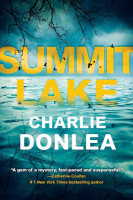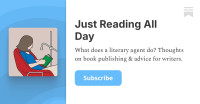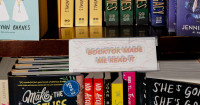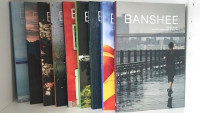
Trying to write a novel? A Marrakech ‘book camp’ might unlock your literary skills
ft.com – Monday January 27, 2025

There’s nothing like shopping to form a bond between strangers. It was the glue for two women of letters who met at Lahore Literary Festival a few years ago. “We ended up hanging out, talking about books and shopping. There is a great picture of us in an old haveli. I remember your hair was bright blue, and a blue parrot settled on your shoulder,” says Bloomsbury editor Alexandra Pringle of her encounter with future creative partner, the writer and historian Alex von Tunzelmann. The blue hair is long gone, although von Tunzelmann has gone for purple ahead of their next writing masterclass.
Together with their mutual friend, editor and literary consultant Faiza Khan (Pringle had hired her to run the Bloomsbury list in Delhi), they talked of opening a boutique with a curation of goods and artefacts truffled from their travels. “We realised that our love of objects is founded in storytelling – I do believe everything holds a history and a life,” says Pringle, who lives on a houseboat in Chelsea filled with Staffordshire figures, fine porcelain and ancient finds from Morocco. The idea of a writing retreat then blossomed with the input of author and journalist Nesrine Malik, and, in 2022, Silk Road Slippers was founded.
There are myriad writing retreats out there, often staged in picturesque locales such as the south of France and largely attracting a certain tranche of middle-class England. This literary double act, however, was determined to establish a fully immersive workshop with hands-on exercises, seminars, one-on-one feedback and the central attraction of a guest author. The masterclasses held in Marrakech got underway in November 2023 with Shehan Karunatilaka as the first guest author. Esther Freud (23-28 February) and Alan Hollinghurst (2-7 March) are top billing for the upcoming spring masterclasses, which cost £3,200 per person (with a £1,000 deposit payable on acceptance).

Chicagoan Charlie Donlea on Writing Best-Selling Mysteries
classicchicagomagazine.com – Monday January 27, 2025

With titles like Don’t Believe It, Some Choose Darkness, and The Girl Who Was Taken, you know that you are in for a thriller where surprises lurk around every corner. No wonder Chicagoan Charlie Donlea is a USA Today and a number one best selling author internationally. Along with a Charlie Donlea mystery to get me through this week’s artic cold I added a further stay-at-home pleasure of speaking with the Chicago best-selling author himself about his craft.
Writing the manuscript for his tenth thriller is keeping Donlea indoors this week as well as working with a team to develop his Twenty Years Later into a television series. He may will have news to share soon. His newest hardcover Guess Again will be released in August 2025.
Not only do we love the plot twists that keep you guessing until the final pages, the clever red herrings we fall for and the great destinations where Donlea’s novels are set (including Chicago and Door County as well as faraway places like St. Lucia) we find characters you care for, something lacking in many mysteries.
Here’s what we learned from Donlea on a day when it was two degrees in Chicago.

Why do editors 'ghost'
bukiebooks.substack.com – Saturday January 25, 2025

I saw some recent discourse about this on the Substack app, but it’s been a topic of heated conversation within publishing, between writers and agents, and between agents and editors for the past few years. Some of you may recall Jonathan Karp’s infamous mandate that editors must respond to agent submissions within a month1, after he learned about ghosting.
In the past few years, there have been more instances of editors simply not responding to submissions from agents. They will respond to the pitch, but after receiving the manuscript, neither reject nor ask for a call, even after multiple follow-ups and sometimes even after calls and auction rules are set.
If you are an editor I work with who follows me here, this isn’t about you. You are all perfect. Also, thanks!
Why is this happening?

Publishers and Authors Wonder: Can Anything Replace BookTok?
nytimes.com – Friday January 17, 2025

With a ban looming, publishers are hoping to pivot to new platforms, but readers fear their community of book lovers will never be the same.
Two years ago, Jeneane O’Riley self-published her fantasy romance novel, “How Does it Feel?,” an enemies-to-lovers tale about a woman who meets a handsome, unhinged fairy prince. Without a publisher to help market her novel or get it into bookstores, she decided to promote it herself on TikTok.
Pretty soon, TikTok users started posting their own viral reactions to the book, and sales shot up. One post from a reader shocked by the novel’s plot twists got more than six million views. The book hit No. 1 on Amazon.
“That type of free marketing for a small, independent author is unheard-of,” said O’Riley, who later signed a deal with Bloom Books, a romance imprint at Sourcebooks.
Now, with a law banning TikTok in the United States set to take effect on Sunday, O’Riley and other authors are scrambling to keep their networks of fans intact. O’Riley, who has more than 52,000 followers on TikTok, has been urging people to find her on Instagram, Threads and Facebook. But she’s concerned that her close-knit TikTok audience will disperse.

How To Know If Your Idea Is a Novel or a Screenplay, and Why Thrillers Make Great TV
crimereads.com – Wednesday January 15, 2025

I’m a TV writer by profession, and when I’m not staffing a show, I develop TV series adaptations with the goal of selling one to a buyer. My favorite novel genres to adapt are mysteries and thrillers because I love suspenseful, propulsive storytelling and because thrillers make damn good TV.
TV shows demand action and surprises that compel a viewer to keep watching, and since suspense novels are built around twists, with chapters that end on cliffhangers, they lend well to adaptation. In the Age of Streaming, where thousands of TV shows across 400 networks compete for attention, it’s incredibly difficult for a series to gain traction, but a delicious thriller can quickly amass an audience.
If I spark to a novel, I develop my “take”—a 20-minute pitch on how I would adapt the book into an on-going series. When pitching a series, the most important question I need to answer is Why Now? A thriller novel with a strong hook and a juicy twist is great, but one that has something to say, that sparks discussion around a timely, compelling theme, is undeniable. Think Big Little Lies, with its examination of domestic violence among the elites, or Codename Villanelle (the source material for Killing Eve), with its rare depiction of female obsession.

What's next for kids' books
thebookseller.com – Sunday January 12, 2025

As we look ahead into 2025, the ongoing realities of global instability and economic uncertainty are not going away any time soon. Adaptation will be essential as we navigate these persistent issues, demanding resilience and innovative solutions from individuals and communities alike.
In the creative realm, we are witnessing a significant shift toward authenticity. There is an increasing desire among audiences to trust the true identities of those who created the work – writers, artists, illustrators and actors.
In a time where digital imagery and AI often raise questions such as: is that real, did it actually happen or is it fake? The importance of knowing the voices behind the work becomes paramount. As a result, we can anticipate a celebration of transparency and trust in creative expression. What that means is a striving towards building an artist’s name, audience and credibility to own the copyright so they can be recognised as the original creator of their work across all platforms.
In today’s screen-filled world, we are not just selling books, we are promoting the act of reading itself. We advocate for its transformative power in shaping young minds, fostering empathy and enhancing mental health. This is a responsibility we cannot take lightly. It is one that requires all the creativity and collaboration between agents and publishers to create new formats with retailers who are confident in how to sell these non-traditional formats.
We need to get bold. We need to push the boundaries of what a book can be. Here is how I think this might look in the year to come.

8 Newsletters Demystifying the Publishing Industry
electricliterature.com – Monday January 6, 2025

The publishing industry can feel like an opaque, black box to aspiring authors, with countless gatekeepers—agents, editors, publicists, book buyers and more—shaping the process behind the scenes. Even established authors can find the sector confusing as they attempt to read the tea leaves behind changing advance sizes, varying levels of publicity support and shifting print run amounts.
Fortunately, there are now dozens of newsletters that aim to demystify the publishing business. I’ve been fortunate enough to have found many of them through my book recommendation newsletter, What To Read If, and now love seeing their names pop up in my email. (Given the state of my inbox, this is the ultimate compliment.)
From publishers and publicists to authors and reviewers, the eight newsletters below provide valuable insights and analysis to anyone looking to get smarter about—or to survive in—the publishing world.

The 13 secrets to writing a really good novel
inews.co.uk – Sunday January 5, 2025

One would imagine that the glamour professions of today – YouTuber, influencer, star athlete, crypto millionaire – would not include the humble old novelist. But guess what? “Writer” often storms to the top of dream career surveys, and it seems that the multitudes still believe they have a novel in them, and not only a video game or an OnlyFans site.
Writing fiction, if taken seriously, is a compulsion, and many who want to complete a whole novel end up living a lifetime of frustration. There are a couple of issues here. Firstly, they think that publication will solve all their problems. It won’t. And secondly, they are often stymied by the same mistakes, both technical and psychological. There are ways around some of these.
Can creative writing be taught? Yes and no. Pure talent cannot. Most of the rest of it really can. As a novelist, literary critic and creative writing tutor, I’ve taught for more than 20 years, and I’ve seen the same problems emerging through my time at Arvon, Birkbeck, City University, and, for the past 14 years, Faber Academy, a writing school which nurtures hundreds of students through its six-month Writing A Novel programme, and has also seen more than 200 of those students’ novels published – including plenty of bestsellers.
So here, I offer a few insights.

8 Craft Books to Inspire Your New Year’s Writing Resolutions
electricliterature.com – Thursday January 2, 2025

Many New Year’s Resolutions are health-centric—a promise to eat healthier, exercise more, or finally quit smoking. But for writers, caring for your creativity is just as central to your wellbeing.
To give you some extra motivation, we’ve rounded up books on writing that are filled with new ways of approaching the craft and practical advice from well-known authors. Whether you’re looking to start a new writing practice or finally get to work on the novel idea you’ve been chewing on for the past few months, these books will give you the inspiration you need to begin.
On Writing: A Memoir of the Craft by Stephen King
With more than 70 books under his belt, Stephen King is a pop culture icon. On Writing is a memoir of his writing career, beginning with his childhood in Maine, where he would submit short stories to science fiction and horror magazines; to publishing his first novel, Carrie; to surviving a car accident that nearly killed him.

The revolution in Irish literary journals
rte.ie – Tuesday December 31, 2024

One of the most frustrating things about trying to break into the writing game is having to listen to the advice of people who have already made it.
They'll tell you to be patient. They’ll tell you that with talent, persistence and a little luck, anyone determined enough will eventually have their day. All of which is fine and may actually be true, though it trivialises for many what can often be incredibly difficult in the moment. Not all of us have the luxury to be persistent, and there are a myriad of reasons why this should be so: Financial pressures, the responsibilities of being a parent, disabilities which take up so much of our time and energy that devoting ourselves wholly to the pursuit of one thing is not only undesirable, it seems nigh on impossible.
What those writers miss, therefore—well-meaning as their advice may be—is that support structures need to be in place to facilitate that necessary persistence. Funding from public bodies is one crucial strand of this. Being able to plug into a network of like-minded artists and writers who are struggling with the same thing is another. But perhaps one that doesn’t get talked about enough is the role of literary magazines; those places we submit to when we’re finally ready to share our writing with other people, which give us the ego-boost we need that we’re on the right track.
Get the free newsletter | Submit a news item or article | Get Writers' News for your website





